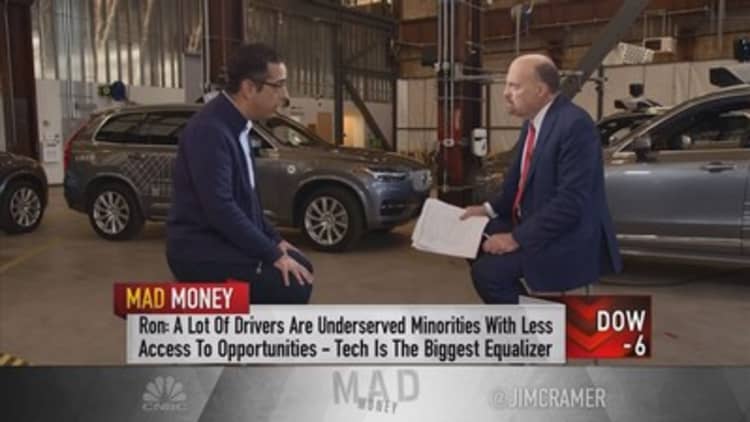Amazon has been testing a new online service that matches truck drivers with shippers since last year, taking its first step into the lucrative online freight brokerage space, according to two people familiar with the service.
The launch of an online freight service helps Amazon better manage its existing network of carriers and expedite the cargo matching process, which remains highly inefficient with most work still being handled over the phone or by fax. But it also signals Amazon's first foray into the freight brokerage space, which includes major competitors like Uber Freight, C.H. Robinson and XPO Logistics.
The freight.amazon.com website, which launched in 2018, allows shippers to get instant quotes on the packages they want to ship between warehouses. The service is currently in beta, and is only available for shipments between warehouses in five states — Connecticut, Maryland, New Jersey, New York and Pennsylvania — according to Amazon's freight service website.
There are only "hundreds" of carriers currently using the service, as Amazon only allows approved trucking partners to participate in the program, these people said.
Once the requested shipment is accepted by a trucking company, details of the shipment are shared through a separate mobile app called Relay, these people said. Relay, which launched in 2017, is for truck drivers to receive additional freight information, like shipment and route tracking, as well as expedited check-in procedures at the warehouse.
In a statement to CNBC, Amazon's representative confirmed the existence of the service, saying: "We work with many line-haul service providers in our transportation network and have long utilized them to carry loads for Amazon. This service, intended to better utilize our freight network, has been around in various forms for quite some time."
Amazon promotes the service as a way for shippers to get easy access to its large carrier network. On its website, Amazon says, "tap into the scale of Amazon as we extend our carrier network to give you best-in-class service at great rates."
That officially makes Amazon a freight broker that helps match shippers to trucking carriers. On the site, Amazon says it's a licensed "freight broker."
Uber Freight, a similar freight brokerage service, officially launched in the U.S. in 2017 and generated more than $125 million in revenue last quarter, according to Uber's recent IPO filing. C.H. Robinson, one of the largest logistics and freight brokerage companies in the world, booked more than $16 billion in revenue in 2018.
Overall, the freight brokerage market was worth $72 billion in the U.S. in 2017, according to Uber's filing, which cites market research firm Armstrong & Associates. It also says companies spent a total of $700 billion on trucking in the U.S. in 2017.
Amazon often launches new services without a public notice to test them before expanding more aggressively. For example, the company has hundreds of private-label brands, almost all of which launched without big public announcements.
WATCH: Uber Freight lowering trucking costs after just 20 months, says head of division



